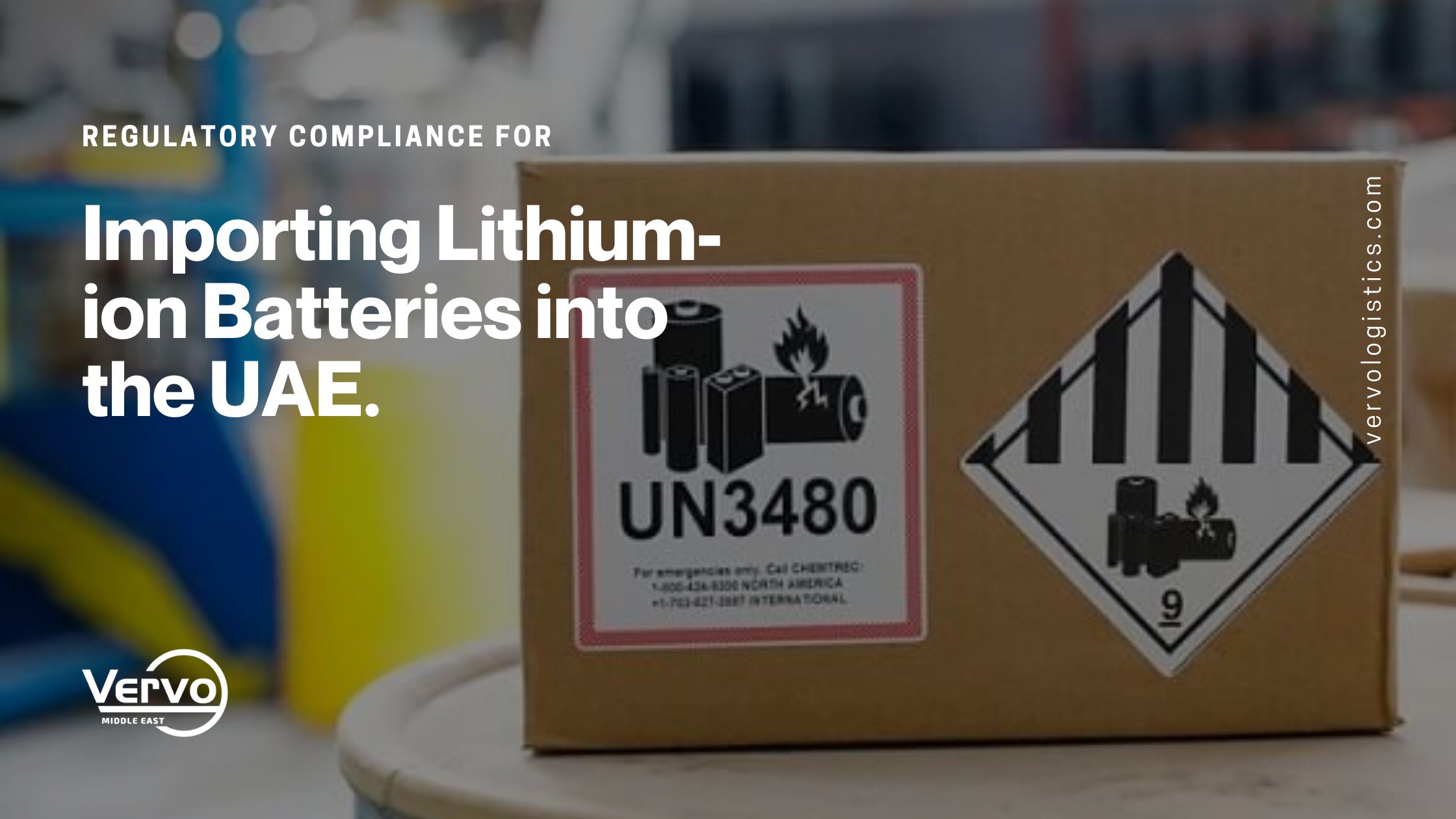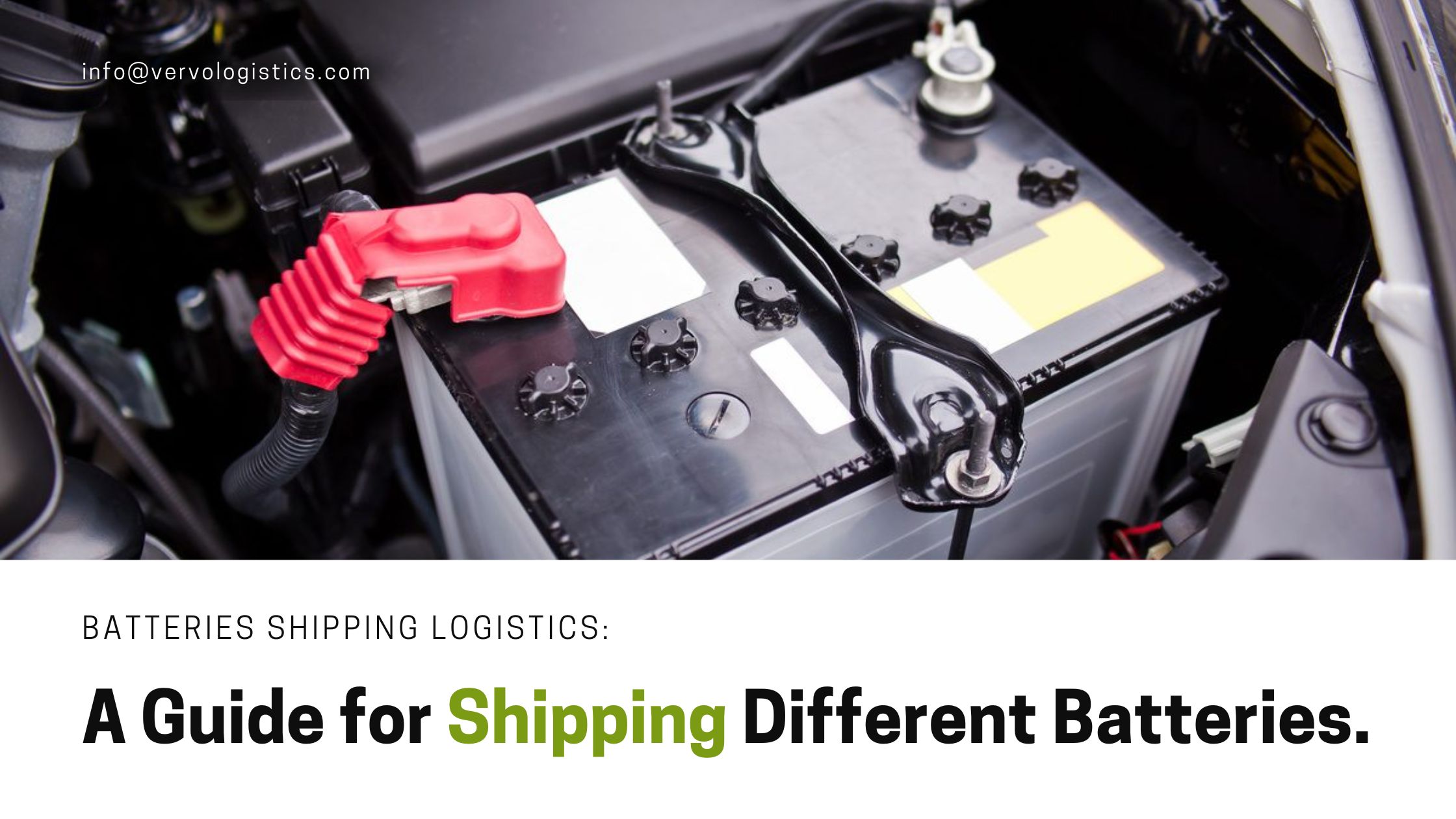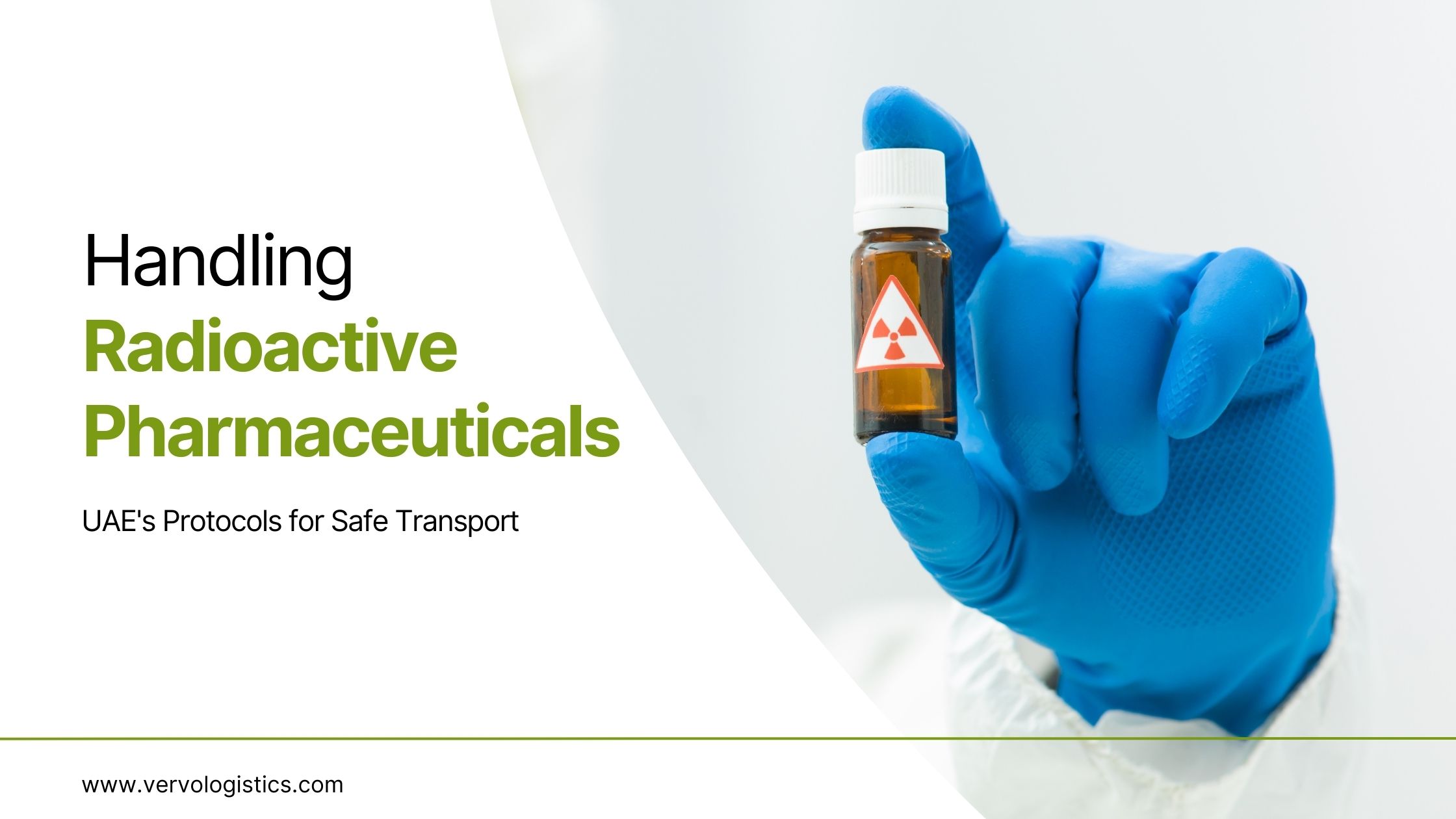9.6% is the growth rate of the GCC battery market in the next 8 years. This accompanies a growing demand for lithium-ion batteries, which are extensively utilized in electric vehicles (EVs), smartphones, laptops, and digital cameras, as well as in renewable energy storage systems.
Li-ion batteries, for all their utility, are classified as dangerous goods under ADR Class 9, requiring a sophisticated process of regulatory compliance. Importing such cargo doesn’t only come with potential risks if not handled with informed care; it can also be easily denied entry for not following strict regulatory compliance requirements.
As a seasoned logistics, 3PL, and shipping company in the UAE, our team possesses a deep understanding of the technicalities that govern the safe and lawful transportation of Li-ion battery cargo. Take a quick look at the regulatory requirements for safely transporting Li-ion batteries into the region.
Understanding Lithium-ion Batteries and Their Risks
Lithium batteries are a family of batteries with lithium as the anode. They come mainly in two forms: Lithium-ion (Li-ion) and Lithium metal. Li-ion batteries use intercalated lithium ions in electrodes, while Li-metal batteries use metallic lithium. Li-ion batteries are rechargeable and commonly used in portable electronics and electric vehicles due to their high energy density and long life cycle. Lithium metal batteries, on the other hand, are generally non-rechargeable, with a higher energy density, used in applications where charging is not feasible; They can be found in watches, calculators, and backup power supplies. The flammability and thermal runaway risks arise easily from the reactive components in the electrolyte.
That is why the shipping process should meet certain standards set by regulatory bodies, whether international ones such as IATA Dangerous Goods Regulations (DGR), or UAE regulations set by GCAA, MOCCAE, and FCA.
International Regulations Governing Lithium Batteries in Transport
The United Nations (UN) Model Regulations reflect an international consensus on classifications, packaging, hazard communication, and transport conditions for dangerous goods like lithium batteries. They form the basis for regional regulations like ADR for road transport in Europe, the DOT regulations in the United States, The International Air Transport Association (IATA), and International Maritime Dangerous Goods (IMDG).
Batteries with sub-sections for lithium ion and lithium metal batteries are classified as Class 9 dangerous goods. Packaging must meet Packing Group II performance standards and include hazard labels. Any shipper must provide a declaration for dangerous goods and comply with limitations on quantity per package and container and separate handling requirements. The classification system for lithium-ion includes:
- UN 3480: Lithium-ion batteries (including lithium polymer batteries) not contained in or packed with equipment.
- UN 3481: Lithium-ion batteries packed with equipment or contained in equipment.
Packaging and labeling must comply with the general provisions for the transport of dangerous goods and specific provisions for Class 9 materials. Class 9 materials, which include lithium batteries and other miscellaneous dangerous goods, have additional regulatory requirements, including:
- Bearing the Class 9 hazard label, which includes a seven-striped symbol in the upper half and the number 9 at the bottom.
- Warning labels, dangerous goods manifest, and specific handling marks indicating the presence of lithium batteries.
- The appropriate UN number and proper shipping name.
- State of Charge (SoC) not exceeding 30% of the battery-rated capacity.
- Strong outer package design that protects against short circuits, terminal damage, pressure change, crushing, and puncture.
- Insulated individual inner packaging that fully encloses the battery.
- Passing specific tests (UN Manual of Tests and Criteria, Part III, subsection 38.3) before they can be transported.
- Quantity restrictions of lithium content per container and additional requirements for batteries over 12 kg
- The use of non-conductive materials for securing batteries and other Specific packaging instructions (PI) such as PI965 for lithium-ion batteries must be followed.
- Rules for stowage and segregation to prevent interaction with other hazardous substances.
For air freight, additional documentation includes a "Cargo Aircraft Only" label for packages that exceed passenger aircraft limits. For maritime shipping, a packing certificate stating that the packing has complied with IMDG code provisions is mandatory. The shipper ‘Declaration for Dangerous Goods’ is required, except in some cases under Section II of the packing instructions. The airway bill or bill of lading must include a notation in the "Nature and Quantity of Goods" box for lithium batteries.
As a logistics partner, we understand how these regulations align. Proper classification, UN testing, and certification of packaging are essential prerequisites. Hazard labels, handling markings, documentation, and quantity limitations support safe handling during transport. Following the standards minimizes the risk of regulatory penalties and delays for non-compliance or incidents.
UAE's Specific Regulations Governing Lithium Batteries in Transport
The United Arab Emirates (UAE) and the broader Gulf Cooperation Council (GCC) countries enforce specific regulations governing the transportation of lithium batteries.
In the UAE, the transport of hazardous materials, including lithium batteries, is regulated and overseen by various authorities, including the Civil Aviation Authority, the Federal Customs Authority, and local municipalities. These regulations cover the handling, storage, and transportation of hazardous goods, including lithium batteries cargo.
The General Civil Aviation Authority (GCAA) in the UAE aligns its regulations for air transport with the International Civil Aviation Organization's (ICAO) technical instructions and the IATA's dangerous goods regulations for the safe transport of lithium batteries that we explained earlier.
The Federal Customs Authority (FCA) in the UAE ensures that the movement of lithium batteries across borders adheres to international standards.
For the transport of lithium batteries through UAE borders, shippers must provide comprehensive documentation to UAE Customs. This includes a Dangerous Goods Declaration, which details the nature of the goods and confirms that they have been packed, labeled, and declared according to applicable regulations.
Additional documents include Material Safety Data Sheets (MSDS), a packing list, a commercial invoice, and, where applicable, an import or export permit. These documents must accurately describe the contents, quantity, and type of lithium batteries being transported.
Handlers of lithium batteries in the UAE, including logistical specialists, are required to undergo specialized training programs. The GCAA mandates that all personnel involved in the handling of dangerous goods receive IATA-certified training, which is recognized internationally. This training ensures that handlers are well-versed in current regulations and safety procedures.
Here is How We Can help:
As a freight forwarder and third-party logistics (3PL) partner, we play a role in the compliance of transporting lithium batteries, not only acting as the critical link between shippers and regulatory bodies; but also serving as operational experts, offering specialized insights and services to optimize compliance. How?
1️⃣ We perform detailed checks against the technical specifications of lithium batteries, ensuring that each consignment meets the UN Manual of Tests and Criteria for lithium batteries.
2️⃣ Our team excels in international and local regulations and stays updated on the frequent changes to regulations worldwide in +120 countries.
3️⃣ We manage the SDS, ensuring that lithium batteries are handled in accordance with their chemical characteristics.
4️⃣ Conducting rigorous risk assessments for each shipment, considering factors like route, climate, and the specific properties of the lithium batteries being shipped, is fully our responsibility.
5️⃣ Access to immediate and accurate emergency response information in case of incidents involving lithium batteries during transport or storage.
6️⃣ Licensed and convenient customs brokerage services with full visibility—we seamlessly manage the necessary documentation and permits while ensuring expedited clearance.
7️⃣ End-to-end logistics solutions that encompass packaging, labeling, transportation, storage, and distribution, all in compliance with dangerous goods regulations.
8️⃣ Deploying advanced tracking and monitoring systems that ensure real-time visibility and control over shipments, along with comprehensive cargo insurance solutions.
9️⃣ Specialized packaging solutions and handling procedures that are designed to meet the stringent requirements and highest safety standards for lithium battery shipments.
Simply put, Vervo Middle East is a partner that offers this level of specialized and technical compliance support. Fill out the form to request your free quote now or send your shipment details to




